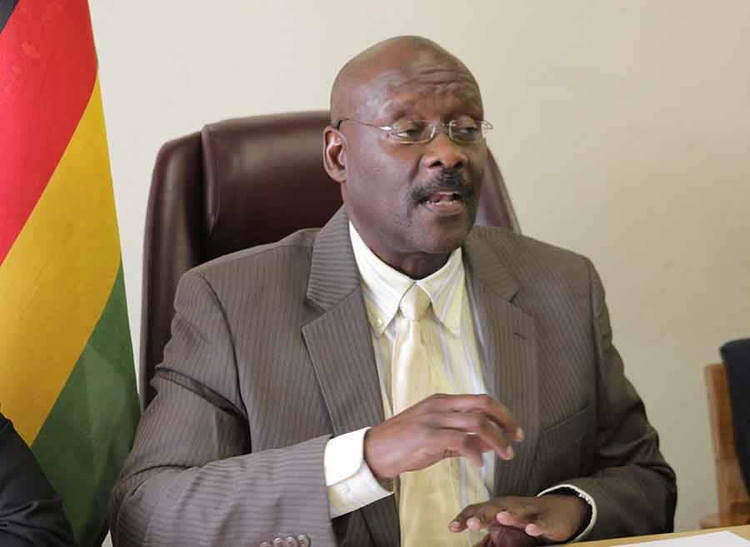
The Sunday Mail

Ministerial statement on the challenges in working relationships between medical aid societies, AHFoZ and providers of health care services presented by the Minister of Health and Child Care, Hon Dr David Parirenyatwa, to Parliament on June 23 2016:
Thank you Mr Speaker, Sir.
Yesterday I promised that I would make a ministerial statement on the situation and challenges between the health insurers and health care providers and the way forward.
Hon Speaker, Sir, of late you have heard, largely through the media, of challenges in the working relationships between medical aid societies and representatives of individuals or by the Association of Health Care Funders of Zimbabwe (Ahfoz) and providers of health care services, particularly doctors as represented by the Zimbabwe Medical Association (Zima). The challenges as seen from the providers, that means the doctors and others, arise mainly from the following areas:
1. There have been disagreements over tariffs for various areas of service provision.
2. Payment by insurance to providers based on the insurers’ preferred tariff rate.
3. Delays in meeting payment for services rendered.
4. Referral of clients by insurers to preferred networks of providers in their clinical and laboratory facilities.
5. Conflict of interests by insurers by way of building, owning and running medical and dental clinics, hospitals, pharmacies, laboratories, radiological centres, rehabilitation units, optician clinics and other related health centres.
6. There has been disregard of gazette fees by the insurers.
7. Unfair and crippling taxation and recovery practices by Zimra based on claims lodged by providers to insurers which claims are yet unpaid and outstanding at time of taxation.
I will now go to the challenges as seen from the insurers and this is their own perspective:
1. There has been disagreement over tariffs for various areas of services provision.
2. Charges by providers that are way beyond what the insurers can afford.
3. Demands by providers from patients for cash payment upfront while the clients are holding valid insurance cards.
So, discussion on the above mentioned issues, some of which are now long-standing in nature, have been ongoing albeit very slowly with a resultant near stalemate situation.
Zima announced that they will, with effect from July 1, 2016; stop accepting medical aid cards and charge cash all patients seen by their constituency.
The trigger situation to this is the taxation and subsequent garnishing of providers’ accounts by Zimra for tax obligations which are deemed due based on the act of submission of a claim by a provider to an insurer regardless of whether this has been paid or not.
Providers claim and having in some instances provided a proof that their claims usually remained un-paid for periods in excess of the statutory 60 days and sometimes for periods of up to six months or more.
Resultantly, providers felt they were being taxed for what they have not earned. Clarification with Zimra indicated that Zimra was acting within the law and the challenge was, in fact, between the provider and the insurer and could, therefore, not absolve providers of the obligations for taxation; its timing, the resultant default status and the garnishing of accounts thereof.
To get out of this technicality and its consequences, the providers then decided on resorting to cash charges as announced until such a time that their insurers where ready to meet their obligations in a timeous manner.
This situation will obviously disadvantage and stress the client who is rightfully insured but has to be exposed to out-of-pocket expenditures.
As a regulatory authority, my Ministry called for an urgent meeting to resolve the looming crisis and we had a marathon meeting of three-and-a-half hours to prevent further deterioration of the situation.
An important stakeholder, the Minister of Finance and Economic Development, Hon Patrick Chinamasa, was present at this meeting.
The matters detailed as before were tabled and discussed. We all realised some issues needed more time and further engagement but we sort to immediately avert the potential crisis that will be ushered in by the cash upfront position.
We, therefore, implored Zima to give engagement more time. The Minister of Finance and Economic Development would look into how the taxation timing issue could be handled and the insurance were going to scrap the preferred provider approach and for those in arrears to work towards a framework to pay for claims within the statutory 60 days.
Both the providers as represented by Zima and the insurers as represented by Ahfoz as well as individually for some sort to reprieve to feed back their constituencies and revert to me with agreed positions on the proposed way forward.
The discussion during which we all agreed on the need to protect the interest of the innocent client and patient were candid and frank. I am optimistic that Zima will give due consideration to our plea and I expect feedback.
We also agreed and committed to meet more regularly and address all the contentious areas methodically, including the regulatory provisions to address some grey areas not well articulated in the current Statutory Instrument.
To this end, my Ministry has embarked on the process of crafting a Bill for regulation of medical aid societies.
The principles have been passed by Cabinet and the drafting process has started. We will consult widely in that process. I will keep this august House updated.
I thank you Mr Speaker, Sir.



